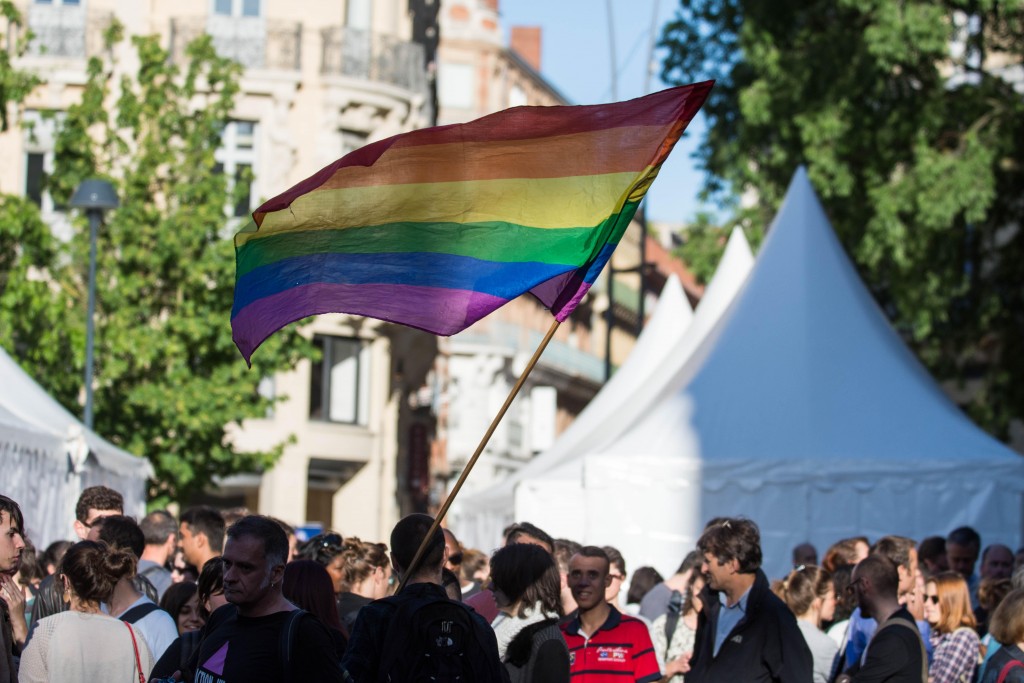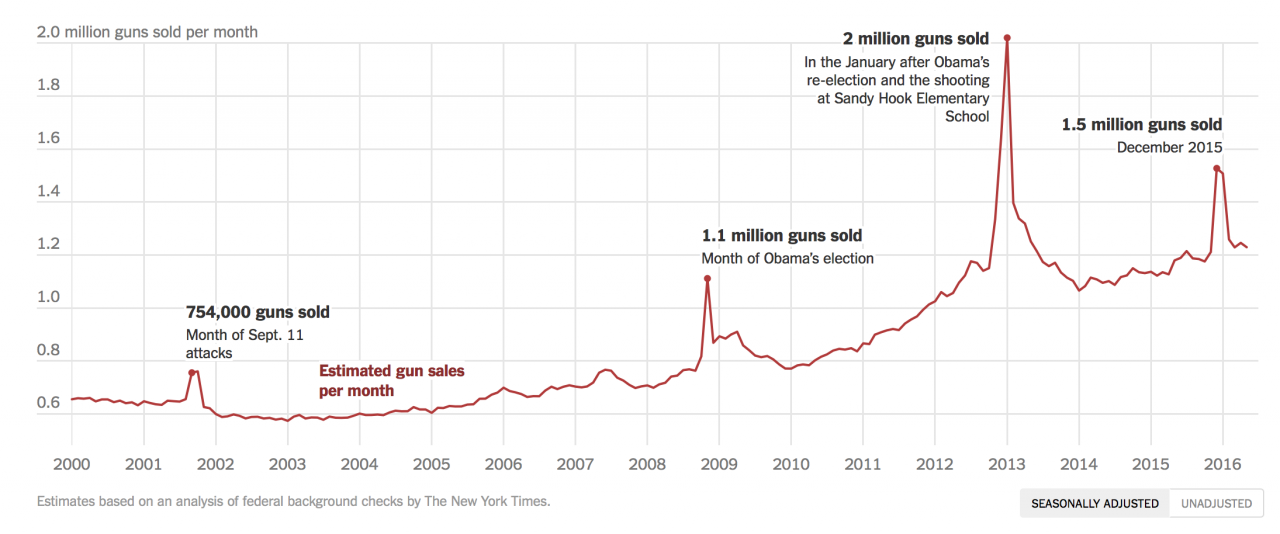
Why the economics of the gun industry is failing those tackling hate, and this time, homophobia
Orlando is a tragedy. There’s no doubt about it. The deadliest mass shooting in recent American history. The loss of at least 50 lives. An attack on the LGBT community that has fought throughout history for its right to exist – and demonstrated in vigils around the world last night that it will not be defeated by hate.
First and foremost, this is a time for sadness, reflection and solidarity for the LGBT community and the loved ones of lives lost. Homophobia, Islamophobia, terrorism, and gun violence are issues that pervade the news day in day out, and until they are solved, they should continue to do so. Owen Jones demonstrated a great rejection of ‘straightsplaining’ as he walked off Sky News in protest at the presenters’ refusal to acknowledge the homophobic nature of this attack.
But in the US, there’s a common factor behind tragedies like this, and it’s one that needs to be discussed time and time again: how did Omar Matteen (along with the 42 others who killed people with guns on the same day in the US,) get his hands on a weapon?
Guns are big business in America. In just one year, the US manufactured 10,844,792 guns, excluding those produced for military use. It exported 393,121, and imported 5,539,539.
You read that right. On top of the 10 million it manufactures itself, the US brings in another five million a year – in other words, it’s a net importer. There are now more guns in circulation than there are people in the country – that’s approximately 357 million guns compared with a population of 317 million.
How has this happened? What makes the gun industry so powerful? How many lives rely on it, how much money goes into it, and what would it take to change it? There's three big things to understand.
1. A lot of people’s jobs depend on guns
According to research by the National Shooting Sports Foundation, the number of full-time jobs in the gun industry has grown by more than 73% in eight years, with some 288,000 people now employed in related professions. That generates some $14 billion in wages a year, which gets spent back into the economy.
2. There’s a lot of money to be made from guns... and the more shootings happen, the more guns are sold
While it's hard to find accurate figures, the firearms industry is certainly a very lucrative one. May 2016 was the thirteenth month in a row in which gun sales rose in the US, with 1,870,000 firearms checks being carried out last month alone.
The US gun and ammunition manufacturing industry had an annual revenue of $13.5 billion in 2015, making an estimated $1.5 billion in profit. To this, one can add the estimated $3.1 billion in annual revenue and the $478.4 million in annual profit made in the same year by gun and ammunition stores.
“There are now more guns in circulation than there are people in the country – that’s approximately 357 million guns compared with a population of 317 million. ”
It gets even more depressing when you look at what tends to happen in the aftermath of such events. Following last year’s shooting in San Bernardino, sales of guns spiked dramatically.
In fact, more guns were sold in December 2015 (1.6 million) than almost any month in the last 20 years. On Black Friday (the first day of Christmas sales in the US, usually the busiest shopping day of the year), the FBI said it processed 185,345 gun background checks, the most recorded in a single day.
Why? Two reasons. Firstly, shootings make people more fearful, and they tend to react by wanting to protect themselves (‘better buy a gun’). Secondly, sales go up in response to politicians’ calls for more restrictions (‘better buy that gun while I still can’). It’s so extreme that one financial analyst once called Obama ‘the best salesman for firearms’ after he called for more restrictions after the Sandy Hook massacre in 2012.

3. A lot of really powerful people feel very strongly that restricting gun sales is not a good idea
A lot of Americans attach a vast amount of pride and value to the right to own a gun – a 2014 Gallup poll showed that less than half of Americans now support stricter gun laws. Some very powerful individuals and organizations will do anything to protect that right, paying significant amounts of money to influential individuals in government to convince them to do the same.
People call this lobbying, which basically means petitioning government representatives to pass laws favorable to the issues you support. It gets good stuff done, but it’s also become really professionalized, with big business investing millions in order to get the political results it wants.
For instance, pro-gun lobbyists spent $27.3 million in 2014 on keeping gun sales up, compared to $4.2 million spent on gun control. That expenditure means it’s more likely for pro-gun measures to find their way into legislation.
To put it bluntly, there’s a shitload of money to be made and a lot of livelihoods depending on the gun industry. Surely, this is why nothing gets done about it, and why, beyond the initial expressions of sympathy and outrage, moral arguments are quickly forgotten.
It’s almost as if the US is in an arms race with itself.
You can see it in the presidential race right now, with Donald Trump backing ownership of guns with all his might, and Hillary Clinton calling for stricter controls. But whichever way you go, the outcome seems to be more guns.
It’s also worth bearing in mind America’s position on arms beyond its own borders. As we’ve seen, although a relatively small firearms exporter, when military exports are thrown into the mix, the US is easily the world’s biggest arms supplier . In fact, it controls 50% of the global market. In 2014, total US arms sales reached $36.2 billion – that’s a 35% rise in seven years.
Scenes like Orlando are all too familiar. In total 13,286 people were killed by guns in the US last year, 475 of whom died in 372 mass shootings. The figures show a common response seems to be: buy more guns.
Beneath the madness and horror of mass shootings like this one, there’s the stark truth that billions of dollars, hundreds of thousands of livelihoods, and immense political power are doing a pretty good job at making sure that the weapons behind tragedies like Orlando aren’t going anywhere – an economic truth few people are prepared to confront.



